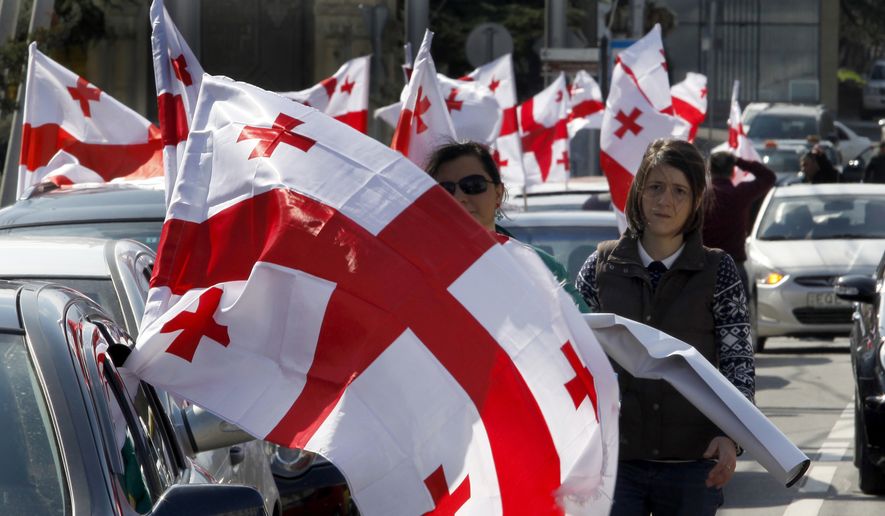ANALYSIS/OPINION:
The Republic of Georgia, a staunchly pro-Western country in the southern Caucasus, will receive some distinguished visitors this week: NATO Secretary-General Jens Stoltenberg and a bevy of ambassadors from NATO’s main political decision-making body.
Given the regional security challenges posed by resurgent Russia, post-coup Turkey, a newly confident Iran and the Islamist terror threat, they’ll have lots to talk about.
Georgia is strategically important for a variety of military and economic reasons. Pipelines run through it, carrying oil and gas to European markets. As the West tries to become less dependent on Russian energy sources, these pipelines will become increasingly important.
By building on the work of the previous government, the country remains firmly committed to Euro-Atlantic integration under the current Georgian Dream coalition led by Prime Minister Giorgi Kvirikashvili and President Giorgi Margvelashvili. It preserved its democratic achievements, and it is in America’s interest to keep it this way.
Russia is not happy about this. President Vladimir Putin feels that Georgia rightfully belongs in Moscow’s sphere of influence, and he has used overwhelming force to bring it back.
In 2008 Russian troops invaded Georgia and advanced within mere miles of the capital. Russia still occupies the Georgian regions of South Ossetia and Abkhazia (amounting to 20 percent of the country) in violation of international law and the six-point cease-fire agreement.
Despite the ever-looming threat from Russia, the Georgian people remain committed to its westward orientation. Why does this matter to the U.S.?
Georgia has proven itself to be a staunch American ally, providing troops to joint operations when needed most. At the time of the Russian invasion, Georgia had the second-largest troop presence in Iraq among all coalition member, behind only the U.S. itself.
At the height of the war in Afghanistan, Georgia had almost 2,000 soldiers in the dangerous southern part of the country. On a per capita basis, it contributed more troops and suffered more casualties than any other nation in the coalition. It still maintains 860 troops in Afghanistan as part of the coalition’s post-combat training mission.
Among its neighbors, Georgia shines as a beacon of democracy and economic freedom. The current government has pursued an agenda of liberalizing the economy, cutting bureaucracy and fighting corruption.
The 2016 Index of Economic Freedom, published annually by The Heritage Foundation and The Wall Street Journal, ranked Georgia 23rd out of 184 countries in terms of economic freedom. Just 20 years ago it ranked 123rd.
Georgia now places ahead of 26 European nations — including France, Spain and Belgium — and presents a stark contrast to its northern neighbor Russia. In Mr. Putin’s Russia, democratic freedoms are in retreat, corruption is endemic, and the future is bleak.
In Georgia’s capital, Tbilisi, a riverside park features a bronze statue of Ronald Reagan. The reforms taking place in modern Georgia reflect Reagan’s belief in democracy, free markets, a strong defense and liberty.
For Georgians, the statue stands as a reminder of how far they have come since regaining their independence from the Soviet Union 25 years ago. To the West, the statue is a reminder that the Cold War did not just end — it was won.
Has Georgia experienced growing pains since 1991? Certainly. But like every other country in the democratic world, it is always striving for a more perfect union.
If Georgia slips back into Russia’s orbit instead of being drawn into the European family of nations, the West will have no one to blame but itself. NATO should live up to its 2008 promise and keep Georgia on the track to NATO membership.
This small country may seem insignificant and distant to policymakers in Washington, but a free and strong Georgia is in America’s best interest. If the U.S. gives it short shrift, it does neither itself, nor millions of freedom-loving Europeans, any favors.
• Luke Coffey is the director of The Heritage Foundation’s Allison Center for Foreign Policy Studies.




Please read our comment policy before commenting.